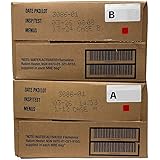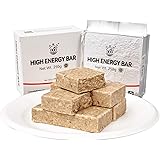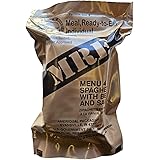How to Survive Without Modern Conveniences: A Guide for Preppers
Top 4 Semantic Keyword Phrases
- Living Off the Grid
- Basic Survival Skills
- Preparing for Emergencies
- Self-Sufficiency Techniques
Living Off the Grid
Understanding Off-Grid Living
Let me tell you, living off the grid is not just a phrase; it’s a lifestyle choice that comes with its perks and challenges. Initially, when I decided to go off-grid, it felt like stepping into a whole new world. It’s about being independent, relying less on urban conveniences, and really connecting with nature.
Your focus shifts from daily routines dictated by the clock to a more organic rhythm dictated by sunlight and seasons. I’ve learned to embrace this change, and though it can be a bumpy ride at first, there’s a certain satisfaction that comes from forging a life based on self-reliance.
Engaging with your environment puts you in sync with the world around you. I often feel a deep sense of peace, knowing that I’m living in a way that honors the earth and teaches me valuable lessons every day.
Essential Tools for Off-Grid Living
When it comes to tools, think simple but effective. Some essentials in my toolkit are hand tools that you can sharpen and maintain without needing electricity. A good axe, a sturdy shovel, and even a hammer are invaluable.
I can’t stress enough the importance of having reliable knives. I’ve become pretty attached to my trusty multi-tool. It’s amazing what you can accomplish with a little ingenuity and some well-chosen equipment.
Also, consider safety equipment. The last thing you want is to be off-grid without a way to treat injuries or fend off wildlife. A first aid kit that’s well-stocked can make a huge difference in your survival chances.
Challenges of Living Off the Grid
Every lifestyle has its hurdles, and off-grid living is no exception. Weather is a major factor that can influence your day-to-day activities. Extreme temperatures, heavy rainfall, or snow can significantly affect your ability to gather food and stay warm.
== > What if ... Get a FREE Subscription to PREPARE
In my early days, I struggled a lot with maintaining a sustainable water supply. You quickly realize that water is life, and having a good filtration system or rainwater collection setup is imperative.
Lastly, loneliness can creep up on you. It’s easy to feel isolated when you’re far from civilization. Finding ways to connect with others in the prepping community has been a game changer for me and has really broadened my support network.
Basic Survival Skills
Essential Skills to Master
Survival skills can make or break your experience in prepping. One of the first things I learned was how to build a shelter. It might seem daunting, but it’s really about using what you have around you. I started with simple lean-tos before moving on to more complex structures as my confidence grew.
Fire-making is another crucial skill. There’s something primal about being able to start a fire from scratch. I experimented with different methods, from friction to flint and steel. Each method taught me patience and persistence.
Finally, mastering the art of foraging has been a delightful journey. I’ve come to know many local plants, and learning to distinguish which ones are edible and which ones are not has opened up a new realm of possibilities for food sourcing.
Gathering Water and Food
Having a reliable source of water is non-negotiable. For me, finding clean water sources was all about exploring my surroundings—creeks, lakes, or springs became my best friends. I immediately learned how to purify water and set up storage systems.
Food sourcing can be equally creative. I started by planting a small garden, focusing on herbs and vegetables that are native to my climate. Over time, I expanded it and even experimented with permaculture techniques, which have been rewarding.
You might be surprised at what you can forage, too. I’ve found that mushrooms, wild berries, and nuts can elevate meals significantly, adding both nutrition and flavor without having to rely on grocery stores.
Staying Motivated
Keeping spirits high when times get tough is vital. I’ve learned to set small, achievable goals—whether that’s improving my shelter or harvesting from my garden. Each little victory counts and fuels my motivation to carry on.
Having a solid routine helps, too. Early morning rituals, like hopping out of bed to watch the sunrise, have become my daily inspiration. A little bit of yoga or meditation goes a long way in prioritizing mental well-being.
Lastly, connecting with others who share the same interests—whether at local prepping workshops or online forums—has been a morale booster for me. It’s encouraging to share experiences, frustrations, and successes with like-minded individuals.
Preparing for Emergencies
Identifying Potential Risks
Understanding the landscape around you is key to prepping effectively. I took the time to research natural disasters prevalent in my area, whether it be floods, hurricanes, or wildfires. This awareness allowed me to make informed decisions when it came to preparing my home and ensuring I had an emergency kit ready.
Also, it’s wise to consider infrastructure issues, such as power outages or food supply disruptions. It’s better to have a plan in place before a crisis hits. Trust me; it saves a ton of panic later.
Taking the time to engage with community resources and knowing local emergency contacts can provide additional support during a crisis. I’ve found community engagement has been invaluable for planning my emergency kits and strategies.
Creating an Emergency Kit
Your emergency kit should be diverse and tailored to your needs. I filled mine with essential supplies—water, non-perishable food, first aid supplies, and essential tools. I learned to be thorough, considering possible emergencies that could arise.
Don’t forget important documents! Having copies of identification, insurance paperwork, and essential contact numbers stored safely is a lifesaver during emergencies. I keep mine in a waterproof container, ready to grab at a moment’s notice.
Finally, practice regularly! Knowing how to use what’s in your emergency kit is just as important as having it. I’ve organized mock drills with friends and family, and it’s not only helped hone skills but has also made preparedness a fun and bonding experience.
Building a Support Network
No one can prep alone forever. Building relationships with neighbors, friends, and family creates a safety net when the going gets tough. I encourage potlucks where we can share food and skills; it builds community and trust.
Social media and local groups are also great platforms to find people with similar interests. You’d be surprised by the wealth of knowledge out there. I’ve learned so much from others’ experiences that have saved me countless hours of trial and error.
I’ve also found that volunteering at local shelters or community gardens is rewarding. Not only do you contribute positively to your community, but you also build valuable relationships that could help in times of need.
Self-Sufficiency Techniques
Food Preservation Methods
When it comes to self-sufficiency, knowing how to preserve food is key. I’ve dabbled in canning, which might seem daunting at first, but once you get the hang of it, it’s incredibly satisfying to see your hard work preserved in jars!
Drying fruits and vegetables has also become one of my go-to methods. I often set up a solar dryer in the summer months which is both effective and an excellent way to utilize the sun’s energy!
Don’t underestimate fermentation either! It’s a fun, tasty way to enhance nutrition while ensuring food lasts longer. I’ve had some pretty successful batches of sauerkraut, and it’s such an awesome way to introduce probiotics into my diet.
Renewable Energy Sources
After digging into off-grid living, I realized that renewable energy options could be the game changer. Installing solar panels was one of my best decisions! The initial investment feels steep, but once you see your energy independence grow, it’s beyond rewarding.
Wind turbines are another fascinating option. Living in a breezy area, I toyed with the idea of incorporating a small turbine, and while I’m not there yet, it’s certainly on the horizon!
Moreover, I learned that even little tweaks, like using solar-powered lights or portable battery chargers, contribute to overall energy savings and sustainability. Every little bit counts in the mission for self-sufficiency!
Waste Management Practices
Adopting effective waste management doesn’t just keep your living space tidy—it’s integral for a sustainable lifestyle. I’ve taken to composting, which has been great for reducing waste while nurturing my garden soil. It’s seriously one of the simplest and most rewarding changes I’ve made!
Learning to recycle more effectively and creatively reuse materials has been a fun challenge. I’ve transformed old jars into storage, and an old fence into trellises for my tomatoes—a win-win.
Finally, I incorporated a system for managing gray water, allowing me to reuse water from sinks and showers for my garden. It’s amazing how much you can do to minimize waste by changing how you view your household resources!
FAQs
What does it mean to live off the grid?
Living off the grid refers to a lifestyle where one lives independently without reliance on public utilities, often focusing on self-sufficiency, sustainability, and connecting more with nature.
What are some essential survival skills I should learn?
Key survival skills include building shelters, making fire, foraging for food, purifying water, and maintaining basic first aid. These skills form the foundation for self-reliance in emergency situations.
How do I prepare my emergency kit?
An effective emergency kit includes water, non-perishable food, a first aid kit, important documents, and tools. Customize it based on your location risks and regularly practice using its contents.
What are some self-sufficient food practices?
Self-sufficient food practices include gardening, food preservation methods like canning and drying, and even learning to forage. These practices help sustain your food needs without relying on stores.
Related Content
ReadyWise Emergency Food Supply - 72 Hour Survival Kit, 30 Servings of Protein Meals, Freeze Dried Food for Backpacking, Camping Essentials & Disaster Prepping Supplies, up to 25 Year Shelf Life
$24.99 (as of January 28, 2026 01:34 GMT -05:00 - More infoProduct prices and availability are accurate as of the date/time indicated and are subject to change. Any price and availability information displayed on [relevant Amazon Site(s), as applicable] at the time of purchase will apply to the purchase of this product.)Augason Farms Dehydrated Cross Cut Celery Can, Emergency Food Supply, Everyday Meals, 36 Servings
$20.97 (as of January 28, 2026 01:34 GMT -05:00 - More infoProduct prices and availability are accurate as of the date/time indicated and are subject to change. Any price and availability information displayed on [relevant Amazon Site(s), as applicable] at the time of purchase will apply to the purchase of this product.)2026 Inspection U.S. Military Surplus MREs A and B Case – 2 Cases of 12 each Meals ready Eat | Genuine Military Rations with Flameless Heaters | Long Shelf-Life Emergency Food Supply
Now retrieving the price.
(as of January 28, 2026 01:34 GMT -05:00 - More infoProduct prices and availability are accurate as of the date/time indicated and are subject to change. Any price and availability information displayed on [relevant Amazon Site(s), as applicable] at the time of purchase will apply to the purchase of this product.)





